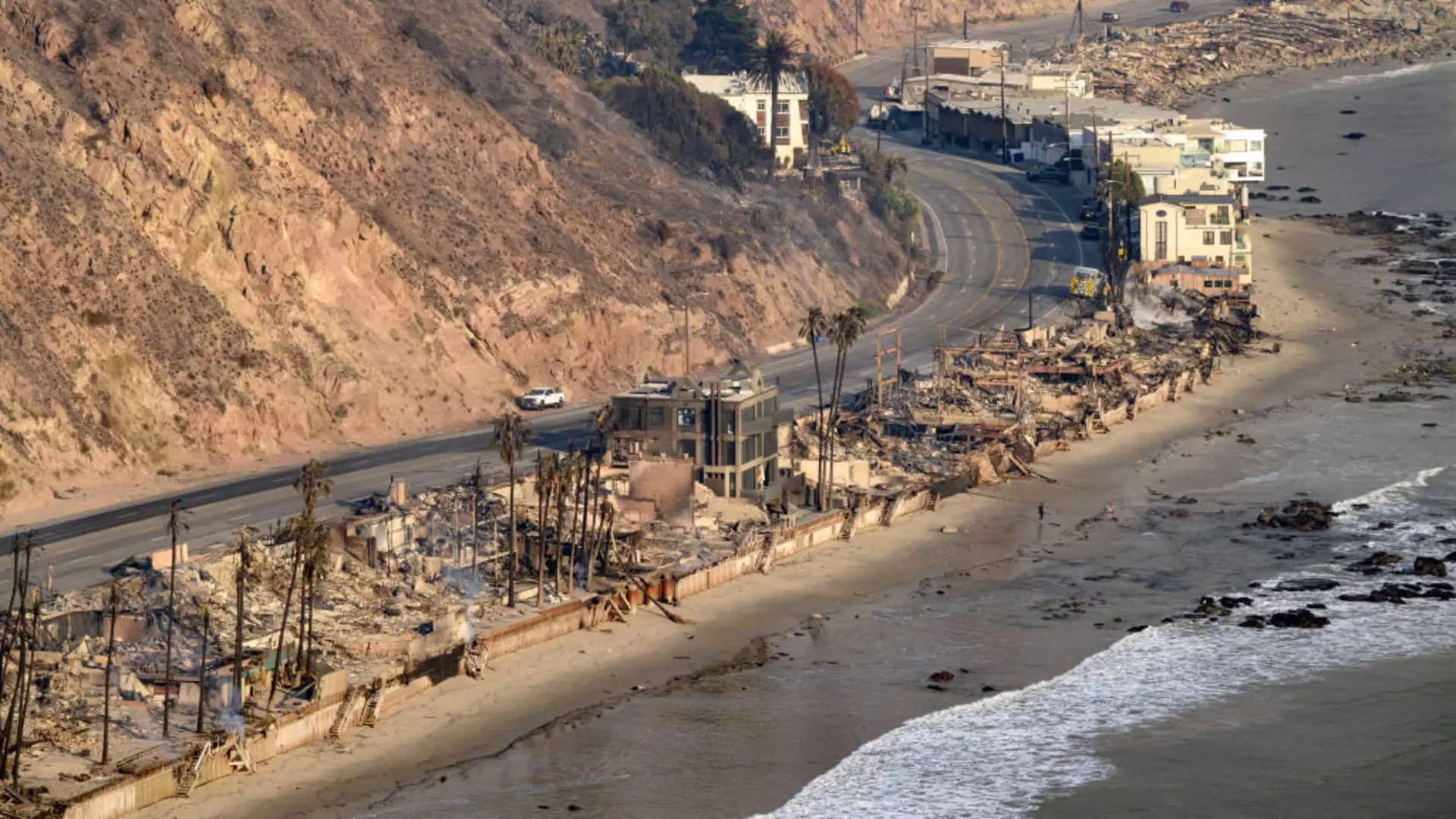The recent wildfires in Los Angeles have prompted significant operational changes for airlines serving the region. In response to the challenging conditions, carriers like American Airlines, United Airlines, and Southwest Airlines have enacted travel waivers for affected customers. This article delves into the repercussions of these wildfires on air travel, assessing both immediate impacts and potential long-term effects on the airline industry in a city that plays a crucial role as a transportation hub.
As the wildfires rage across Los Angeles, the aquatic and electrical infrastructure has been severely compromised, leading to power outages and water conservation measures. Firefighters are locked in a continuous battle to control the flames that have devastated thousands of homes, leaving entire neighborhoods in disarray. Despite these difficulties, most airports in the area—such as Los Angeles International Airport (LAX) and Hollywood Burbank Airport—have managed to sustain regular operations, albeit with heightened vigilance regarding passenger safety.
Flight tracking data shows that as of Friday, commercial airlines were conducting business as usual. However, constant changes in weather conditions and the unpredictable nature of wildfires make operations perilous for both airlines and travelers. For the residents of Los Angeles and nearby areas, the situation is dire, with significant interruptions to normal life and a looming uncertainty regarding air travel.
In light of the emergencies unfolding, key airlines have taken proactive stances in terms of customer service. These waivers allow travelers booked to or from various airports in the Los Angeles region to make adjustments without incurring fees. American Airlines, for instance, has extended rebooking options, allowing travelers to alter their plans as late as January 20. Similarly, Southwest Airlines has indicated flexibility for customers needing to reroute to other California cities, demonstrating a willingness to accommodate those affected by the disruption.
Such operational adaptations showcase the airlines’ responsiveness to environmental crises. Notably, these adjustments not only relieve the immediate stress on travelers but also lessen the financial burden associated with uncontrollable circumstances. These measures reflect an industry trend where customer satisfaction becomes paramount, especially in difficult times.
Economic Implications for Airlines
Despite the waivers and operational changes, the long-term consequences of the wildfires on airline profitability could be significant. Delta Air Lines’ president Glen Hauenstein noted a decline in sales to Los Angeles, a crucial market for both business and leisure travel. The immediate downturn may not translate into drastic cancellation rates; however, it indicates a worrying trend concerning consumer confidence and willingness to travel to potentially unstable locations.
Conversely, Hauenstein also hinted at an increase in demand following natural disasters as reconstruction efforts begin. Travelers often return to affected areas to contribute to rebuilding efforts, leading to a surge in flights. Thus, while there is a short-term decline, there is also potential for recovery, framing the wildfires as a temporary setback in an otherwise robust travel demand environment.
Looking Forward
As Los Angeles grapples with the dual challenges of wildfires and its implications for air travel, the airline industry remains vigilant. Companies must continuously adapt their strategies to navigate uncertainties posed by natural disasters. The outlook for the airline sector is complex: while immediate disruptions are evident, the resilience of travel often prevails in the aftermath of calamities.
Furthermore, the airline industry’s commitment to supporting affected travelers during crises reflects a growing emphasis on customer care and corporate responsibility. As businesses reevaluate their operational frameworks in light of environmental changes, the lessons learned from this crisis will undoubtedly shape future policies.
In essence, the wildfires in Los Angeles have ushered in substantial changes for airlines operating in the region, prompting them to extend travel waivers and rebooking options for affected travelers. While immediate impacts present numerous challenges, there is hope for recovery as the city begins to heal. The dual nature of crisis—both a burden and an opportunity—presents a unique landscape for airlines to navigate, and it will be fascinating to observe the repercussions of this natural disaster on future air travel trends. As Los Angeles recovers, its dynamic relationship with air travel will undoubtedly evolve.


Leave a Reply